Imagine how exhausting it would be to live in someone else’s world. That’s how it feels for people with autism, living in a neurotypical world. Fortunately, there are ways to prevent burnout.
Most estimates suggest that the average human makes between 27,000 and 35,000 decisions each day, with the vast majority of those (more than 95%) happening in the unconscious mind. Those unconscious decisions are where instincts, intuition and context can play a major role, based on what each person knows about the world.
Now, imagine that you didn’t have the instincts, intuition or context to make those same decisions, placing you in a constant state of masking your uncertainty or reading from a mental script.
That would be exhausting, but that’s how many people with autism navigate the neurotypical world in which we live. Every tiny decision or interaction eats up mental bandwidth for that person, which can have a ripple effect on the rest of their lives.
At CORA Physical Therapy, we continue to recognize the importance of Autism Awareness Month in April, and offer a few tips on how to spot the signs of autistic burnout and find relief through occupational therapy.
What Are Symptoms of Autistic Burnout?
Let’s start with general signs of burnout that transcend the neurodiverse spectrum. People suffering from autistic burnout often feel:
- Increased frustration;
- More frequent emotional outbursts;
- Chronic fatigue or exhaustion.
People with autism suffering from burnout also tend to exhibit more pronounced symptoms of autism, including increased speech difficulties and stimming (repetitive, self-stimulating action, like hand flapping or body rocking).
People experiencing autistic burnout may also exhibit increased sensitivity to sensory stimulus, sensory overload, and an inability to react appropriately to change or social stimulus. Because these symptoms further lower their guard, this can create a snowball effect for that person, leading to decreased cognition, executive function, memory, speech, and normal abilities.
Over the long-term, autistic burnout can lead to increased anxiety and depression among those who suffer. A recent study out of Denmark shows that people with autism have a threefold higher chance of attempting or committing suicide than their neurotypical peers, but exhibit very different warning signs. For example, women with autism are four times more likely to attempt suicide as their male counterparts, and the risk for suicide in all people with autism does not decrease with age.
How Does Autistic Burnout Happen?
While the situations may be different, burnout for people with autism happens much the same as burnout for their neurotypical peers: in situations where external expectations outweigh the internal ability to meet them.
For people with autism, that can include the weight of social obligation that comes from either a short burst of high-intensity interaction (a party or concert), as well as long-term, lower-level interactions that don’t come with enough relief (shopping, socializing in an office environment).
Many of the coping mechanisms taught to people with autism are also built around social camouflage, or the act of masking autistic tendencies. For some people, that can mean repressing repetitive behaviors or speech patterns.
While providing an effective crutch for passing as neurotypical, these methods can certainly take their psychological toll on the patient.
How Can Occupational Therapy Be Part of the Solution for Autistic Burnout?
In addition to treatment that may include reducing social exposure and self-expectations, or allowing for sensory withdrawal, there are also therapeutic remedies for patients suffering from autistic burnout.
It’s fitting that April is both World Autism Month and National Occupational Therapy Month, considering the transformative effect that OT interventions can have in treating Autism Spectrum Disorder.
Whether done preemptively or after symptoms begin to manifest, OT can offer effective solutions for easing the effects of autistic burnout, including:
- Sensory Processing: Under-responsivity or over-responsivity to certain sensory inputs means that a person may be less aware, or more bothered by sensory inputs than a neuro-typical individual. Sensory Integration therapy can improve the brain’s ability to receive, filter, and respond to sensory input, helping patients to better cope with sensory processing differences.
- Executive Functioning: Individuals with autism typically have strength in certain areas of executive functioning and need help in others, including attention, working memory, sequencing, inhibition, problem solving, reasoning, and flexibility. Using a variety of methods, occupational therapists can work to build those skills over time.
Ready to Serve You
At CORA, our goal is to provide the highest possible quality of care within the coverage that you have available. Having trouble deciding which options are best for you? Please contact our team at telehealth@corahealth.com with any questions.
